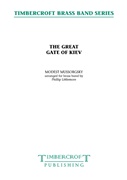Results
-
 £25.00
£25.00Boxing Day Promenade - Brass Band - LM772
COMPOSER: John Lee
In Stock: Estimated dispatch 3-5 working days
-
£37.95
Promenade - George Gershwin
Estimated dispatch 5-14 working days
-
£60.99
Blues, Promenade and Happy Tune - Kees Schoonenbeek
Estimated dispatch 5-14 working days
-
 £60.99
£60.99Blues, Promenade and Happy Tune (Brass Band - Score and Parts) - Schoonenbeek, Kees
Duration: 5.00
Estimated dispatch 7-14 working days
-
 £26.50
£26.50 -
 £37.95
£37.95PROMENADE (Brass Band) - Gershwin, George - Bourgeois, Derek
(Walking the Dog)
Estimated dispatch 7-14 working days
-
£74.95
Overture 'Promenade' (Score and Parts)
Estimated dispatch 7-14 working days
-
£37.95
Overture 'Promenade' (Score Only)
Estimated dispatch 7-14 working days
-
£26.50
-
 £40.00
£40.00Great Gate of Kiev, The (from Pictures at an Exhibition) (Brass Band - Score and Parts) - Mussorgsky, Modest - Littlemore, Phillip
Modest Mussorgsky was a close friend of the young artist and architect Victor Hartmann, and his death in 1873 plunged Mossorgsky into a deep depression. The following year a memorial exhibition in St. Petersburg displayed Hartmann's paintings, costumes, architectural designs and sketches. Mussorgsky's visit to it, combined with his desire to write a piece in his friend's memory, inspired him to compose his?Pictures At An Exhibition?for piano. A suite of ten movements, with a recurring Promenade theme, it is one of the composer's most famous works and regarded as a showpiece for virtuoso pianists. It is perhaps the orchestral transcription made by Maurice Ravel in 1922 that is now the most famous version of it. This arrangement opens with a brief excerpt from?The Hut on Fowl's Legs, which was based on a painting of an elaborately carved clock depicting Baba Yaga, a horrible tiny witch that feasts on human bones. The tenth, and final picture in Mussorgsky's masterpiece is commonly referred to as?The Great Gate of Kiev, although it's literal translation is The Bogatyr Gates -- a Bogatyr being a hero figure in medieval East Slavic legend. It features a grand main theme that is interspersed with a more solemn hymn-like secondary theme. The work closes with a grand final rendition of the Promenade theme that almost grinds to a halt at what must be the foot of what were to be magnificent ceremonial gates (although they were never actually built!). Duration: 6:00
Estimated dispatch 7-14 working days

